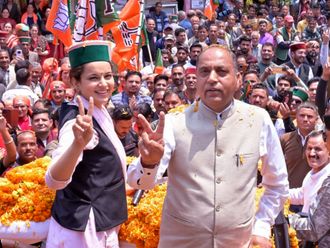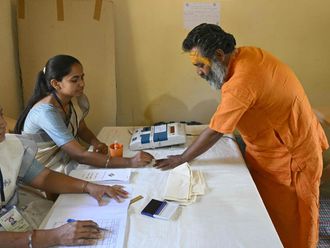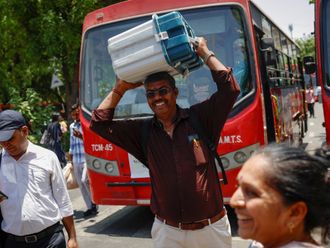Mumbai: The vulnerability of minor girls studying in residential tribal ashram schools across Maharashtra is coming to the fore as yet another case of sexual assault has been reported from a school in Buldhana district.
A Special Investigation Team (SIT) investigating the rape of two minors a few days ago in the Nanji Kokare Adivasi Ashram School at Pala Village in Khamgaon block of Buldhana district in the western most region of Vidarbha and some 500km from Mumbai, has filed a third case against the main accused Ittusingh Pawar following a complaint.
The shocking state of affairs came to light a few days ago when a victim, a 10-year-old girl studying in class four of this school complained of severe stomach pain to her parents when she came home during Diwali holidays. They found out that she had been sexually assaulted and took it up with the village leader who lodged a complaint with the police.
Subsequently, 15 people were arrested, including the main accused Ittusingh Pawar, the headmaster, chairman, trustees and other staffers, many of who knew about the crime, but did not inform the police. Pawar has been charged under Indian Penal Code 376 (rape) and Protection of Children from Sexual Offences Act.
The incident led to the derecognition of the school and the 400 boys and girls studying in the boarding school being accommodated in nearby schools.
Chief Minister Devendra Fadnavis took a serious view of this case and said a senior woman will investigate the case. He has also directed the Social Welfare & Child Welfare departments to carry out a survey of all aided and private ashram schools.
However, the previous Congress and Nationalist Congress Party as well as the present BJP government had in 2008 and 2015 commissioned the Tata Institute of Social Sciences in Mumbai to conduct surveys on the functioning of these schools. Both reports, which pointed to the dire state of affairs, both in education and infrastructure, were ignored. Many of the schools had extremely poor facilities with no toilets and boys were asked to defecate in the open whilst girls were told to go to common toilets for women in the village.
Having seen the functioning of tribal residential schools, tribal activist Pune-based Ravindra Talpe decided to collect information through the Right To Information (RTI) route in 2011. “According to the data received from official records, there were 793 deaths of tribal children in 10 years in these schools due to various illnesses, including malaria, food poisoning, snake bites and drowning,” Talpe told Gulf News.
“These unfortunate cases of minors being sexually assaulted has finally caught the attention of the media and government. Yet, no one has paid attention to the fact there are cases of 172 unwed tribal teen mothers in the last few years just from one district — Yavatmal — itself,” says Talpe and asks, “what do these statistics suggest? What about the other 15 districts with a predominantly tribal population?”
He also cites another incident in January 2013 when two young schoolgirls who went to answer nature’s call in the wooded areas outside their school in Nashik (as there were no toilets) were dragged and gang raped. “This has been happening continually in tribal areas but it didn’t draw the attention of the media or government.”
There are 500,000 tribal girls and boys studying in 1100 ashram schools in the state.
Talpe, along with some organisations — including Maharashtra Adivasi Seva Sangh, Natural Resource Conservators Organisation and Adivasi Samaj Kruti Samiti — working for tribal welfare, filed a public interest litigation (PIL) in 2013 in the Bombay High Court citing the state of affairs, poor quality of education, security of children, etc in the petition.
“So far, there’s been 43 hearings and 13 orders given by the court. The government, too, has issued government resolutions and in paper there were plans to employ 1,961 people — including 55 teachers, a women superintendent in each school, 990 for security, better facilities and so on.”
In fact, the government had allocated Rs6 billion (Dh89 million) in 2013-14 for newer buildings and new infrastructure.
Unfortunately, the implementation has been pathetic and Talpe feels that even this SIT probe has a limited scope and believes there should be monitoring with regular visits from the office of Tribal Development Commissionerate.
Now, those organisations that were a part of the PIL, including Talpe, have been summoned by the State Human Rights Commission (SHRC) on November 24 to hear the litigants. “Finally the SHRC has woken up regarding the plight and death of tribal children,” he said.












